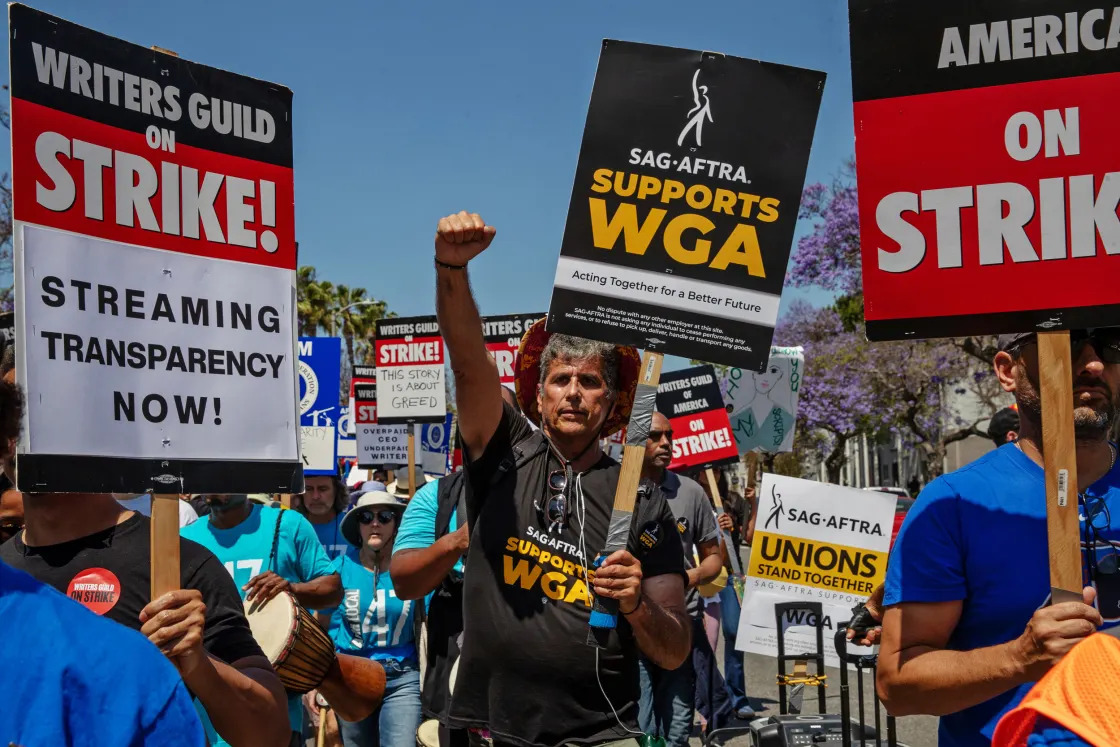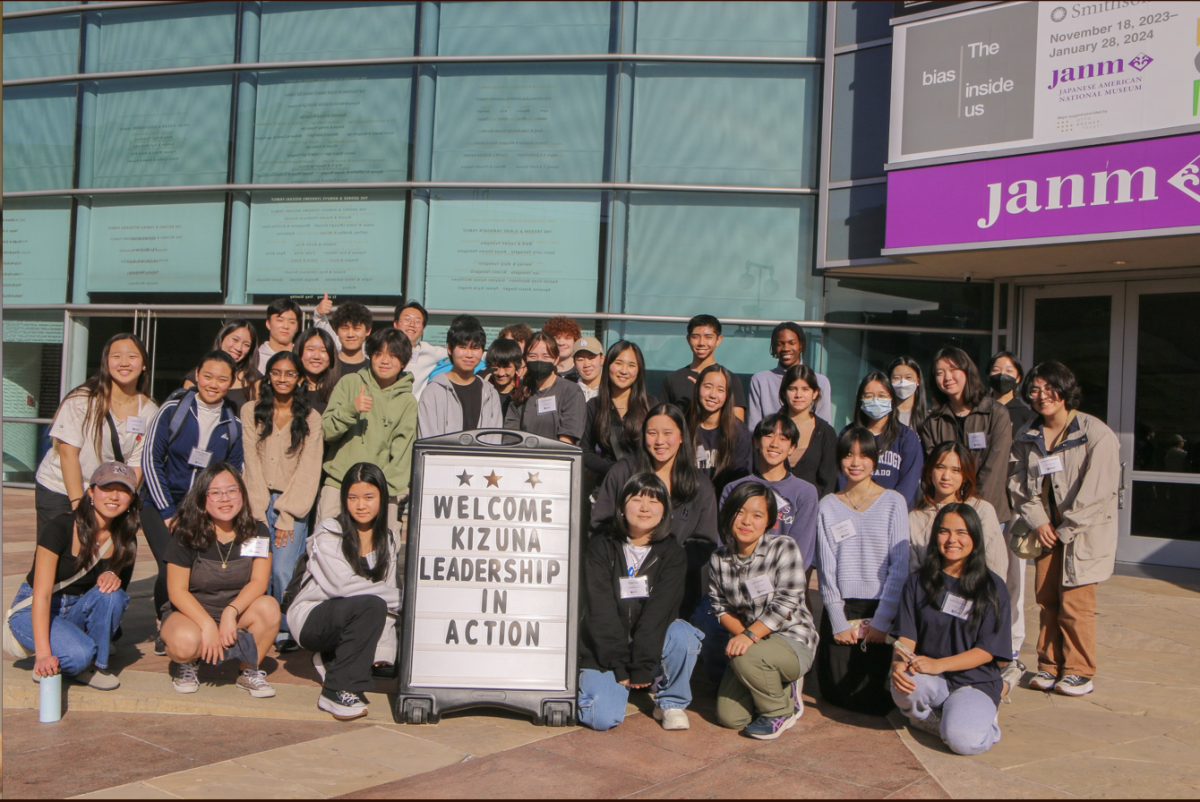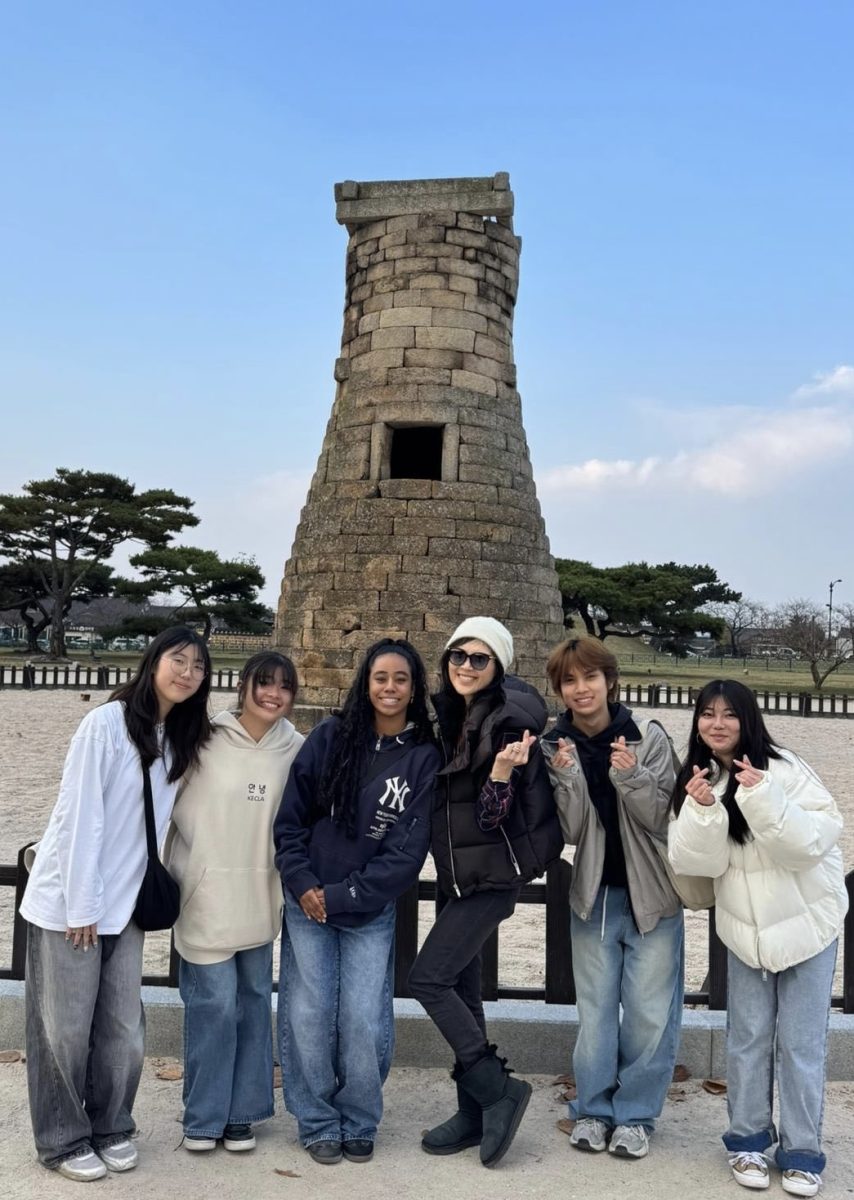On May 2, the WGA went on strike over an advancing labor protest against the AMPTP, the entertainment industry’s trade association of executives and lawyers that manage contracts. Barely two months later on July 14, the actors’ Union SAG-AFTRA joined the WGA on strike, instantly shutting down Hollywood. With the world’s most powerful film industry abruptly halted, many heavily anticipated movies and television shows are now delayed. What can everyone expect next?
With writers and actors on strike for better wages, some of the other issues they are trying to address are better working conditions and more substantial benefits. The WGA and the SAG have had numerous disputes with the AMPTP in the past, and this is hardly the first time they’ve gone on strike to ask for better treatment. Catherine Piotrowski (11), president of West High’s Film Critics Club, voiced how “heavily [companies] like Marvel and Disney mistreat the workers on the lower end,” and although employees are working excessively long hours, they receive “very limited compensation.”
Writers and actors also want to address the controversy regarding the emergence of artificial intelligence. Fears of writers being replaced by artificial intelligence became real this past year after ChatGPT and its other competitors rose in popularity, so what’s the truth behind it all? Piotrowski described screenwriting by artificial intelligence as “for lack of better words, just not good.” By contrast, she remarked how writing by humans is “clever” with “plot and jokes” expertly interwoven into a script. Although artificial intelligence can write a good story, if there is an attempt to replicate human authenticity, “AI just couldn’t do that. They couldn’t think like that.” As smart as artificial intelligence is, in its current state it is not able to effectively write a script or story that can compare to human writing. However, writers are still uneasy about artificial intelligence, so until they receive proper reassurance, they remain unemployed, which has unfortunately stopped film production.
The shutdown of Hollywood caused anticipated movies such as “Dune: Part Two,” “Mission: Impossible – Dead Reckoning Part Two,” and “Spider-Man: Beyond the Spider-Verse” to have their premieres pushed back anywhere from six months to indefinite suspensions. Despite these movies being delayed, fans are still in support of the strike. Piotrowski noted how regardless of the situation being “obviously disappointing,” the delay is “part of the process” and the strike is “ultimately for the best.” Additionally, Samantha Johnson (11), a member of West High’s Play Production, commented how when she first found out about the delayed movies, it was “surprising in a way,” due to the amount of money being lost each day. Though, despite the delay of movies, she acknowledged that “a lot of people will be very understanding of what’s happening right now.”
Even though most fans are in support of the strike, it’s a legitimate question as to what the strike will look like going forward. People within the WGA have been on strike for over four months and those in the SAG-AFTRA have been on strike for almost two months. But, it doesn’t seem like either the AMPTP or the WGA and the SAG want to budge. With the writers and actors pushing for unemployment benefits, they will inevitably have to return to work soon. Ms. Orabuena, West High’s Theater and Artistic Director, emphasized: “It’s horrible for these people” because not working means they’ve lost “their bread and butter.” Concerning the futures of the actors and writers, Ms. Orabuena expressed, “I hope after losing all of this money, they get something out of it. I don’t know why they wouldn’t.”
As firm as the actors and writers have been in their demands for better conditions, it’s evident that the AMPTP has no intentions of giving in at all. No matter how long the strike endures, as consumers of the actors’ and writers’ work, we as fans can continue to support them both during the strike and after.









